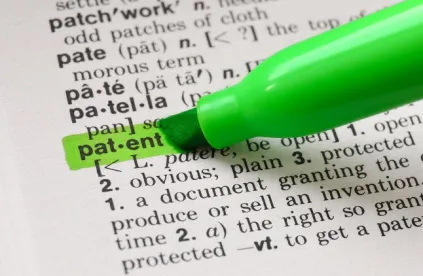In an ongoing patent infringement case involving patents for floor-mounted electrical outlet housings, a federal court in Connecticut recently denied a Joint Motion for a Discovery Dispute Conference, signaling the court’s hesitation to delay the initiation of discovery pursuant to Rule 26(f) merely because a defendant represents that it intends to move to dismiss a plaintiff’s claim.
Plaintiff Wiremold Company filed a complaint alleging patent infringement of its Recessed In-Floor Fitting (U.S. Patent No. 7,183,503) and Recessed Poke-Through Fitting (U.S. Patent No. 8,063,317) patents on December 30, 2016. Counsel for Defendant Thomas & Betts Corporation filed their Notices of Appearance three months later, triggering two requirements: 1) that the parties were to confer for purposes of Rule 26(f) on or before April 29, 2017; and 2) that the parties were to file a Joint Rule 26(f) Report on or before May 13, 2017.
On April 21, 2017, Wiremold sent a draft Rule 26(f) Report and a request to confer prior to May 1, 2017 to the defendant. Disputes regarding the proper timing for the parties’ conference and report arose. After Wiremold did not agree to Thomas & Betts’ request to file a joint motion to extend the Rule 26(f) deadlines, on May 3, 2017, the parties instead filed a Joint Motion for Discovery Dispute Conference. Thomas & Betts stated therein that it intended to file a motion to dismiss for at least improper venue under Fed. R. Civ. P. 12(b)(3) and potentially for lack of jurisdiction under Rule 12(b)(2); as such, it argued the parties’ obligation to engage in the Rule 26(f) conference and file the report should be stayed until after the court ruled on its anticipated motion. Wiremold disagreed, arguing instead that the current deadlines should be followed.
The Court denied the joint motion, finding that Thomas & Betts’ request amounted to a request to stay discovery and that the defendant did not meet its burden in demonstrating good cause for a stay. Judge Bryant explained that neither the anticipation of filing a motion to dismiss nor the filing of a dispositive motion automatically warrants a stay of the conference and the planning steps needed to initiate discovery. She further reasoned that a delay in filing a Joint Rule 26(f) Report would be dilatory because, should Thomas & Betts prevail in its anticipated motion to dismiss for improper venue, it is likely that Thomas & Betts would still be required to comply with Rule 26(f) in the appropriate jurisdiction. As such, the Court ordered the parties to comply with the established deadline for filing their Joint Rule 26(f) Report.
The case is The Wiremold Company v. Thomas & Betts Corp., No. 3-16-cv-02133 (VLB) (May 4, 2017), in the U.S. District Court for the District of Connecticut before Hon. Vanessa L. Bryant. A copy of the decision can be found here.


 />i
/>i

